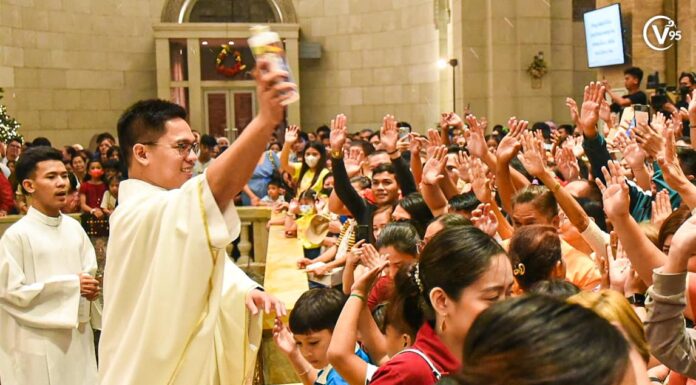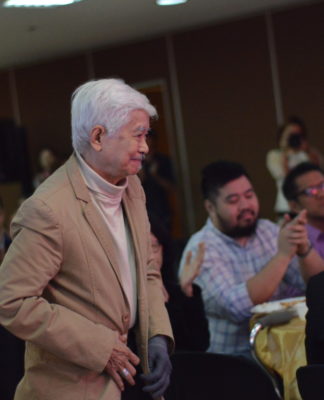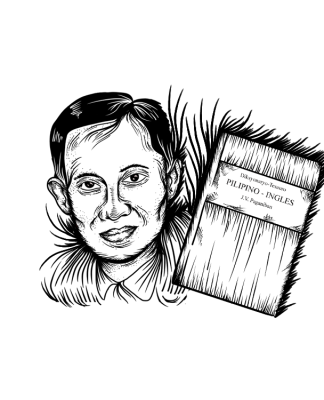TERRORISM is a booming industry right up there with government corruption. Since I could remember, kidnappings, hostage situations, senseless bombings, and bloody murders have always covered the front pages of major dailies.
Acts of terrorism have evolved since then. If in the past crimes have been done in order to make an easy peso, today they have become a part of life—a way of life, even—very much like what corruption is. Today we have terrorist acts not borne of radical ideologies that run counter to the mainstream, but which happen kasi trip lang nilang magpasabog ng bomba.
Evidence that terrorism has found its way into our culture is not difficult to find. Not too long ago I came across this survey in one morning news program where people voted via text messaging. The question ran somewhat like “Natatakot ka ba sa mga nangyayaring pambobomba ngayon sa Zamboanga?” with three choices: “Natatakot”, “Di natatakot”, and “Ipasa-Diyos na lang”.
Bad: the third choice should not be there (Well, all of the choices really miss the point; they should have asked what the people could do instead of what they merely feel, but that’s a different column altogether). Seeing it among the alternatives made me feel that Filipinos are either lazy or apathetic to do anything to avert the crises.
Worse: votes for the third choice were nearly as many as those of the first alternative, which may show that we really must be lazy, apathetic, or downright stupid.
What do we do when crises happen? We wait for supernatural help. But let’s take it from the word itself: “supernatural” help is something not of this world. That means, on the one hand, that when it does arrive, it could be powerful enough to end all evils. But on the other, precisely because it is not of this world, it could be extremely difficult if not totally impossible to come by. Nasa Diyos ang awa, but we must not forget: nasa tao ang gawa.
Let us then lose some faith and get our act together if we are to progress and stop all these calamities, the proliferation of which may be due to our own refusal to take the appropriate action.
***
This is a year of celebrations for the University. The Varsitarian and the UST High School are celebrating their Diamond Jubilees. Unknown to many, the UST Central Seminary is also celebrating the 75th year of its declaration as the Interdiocesan Seminary of the Philippines.
On Nov. 27, 1928, Pope Pius XI made the declaration in a decree released by the Vatican’s Sacred Congregation of Seminaries and Universities.
In January 1926, the bishops of the Philippines voted for the University of Santo Tomas to be the seat of the Interdiocesan Seminary of the Philippines. The resolution of the bishops was confirmed by the Holy See in 1927. Rome made the official declaration on Nov. 27 the following year through the decree Quod iam provide, issued by the Congregation by the authority of the Pope.
For the anniversary’s celebration, the UST Central Seminary will host the first ever Consultation Congress on Seminary Formation on Nov. 22 to 24. This will bring together delegates from 21 seminaries—the regional seminaries of the Visayas and Mindanao as well as all theology seminaries in Luzon.
Speakers in the lecture-fora include Catholic Bishops Conference of the Philippines president Archbishop Orlando B. Quevedo, OMI, DD, and Bishop Luis Antonio Tagle of the Diocese of Imus, Cavite.
***
In the reflection titled “Life’s Meaning” published in the Varsitarian’s new book, Heaven’s Kitchen, I failed to mention that the write-up was culled from a reflection for Philosophy of Religion class. The idea of the article is therefore not mine, but is based on the chapter “Hans Kung and Affirmation of Reality as Fundamental Attitude” of the book Man at Worship by Fr. Ranhilio Aquino, Ph.D., J.D. Though I mention it now, I was still foolish and careless. My sincerest apologies to the good and intelligent professor.

















